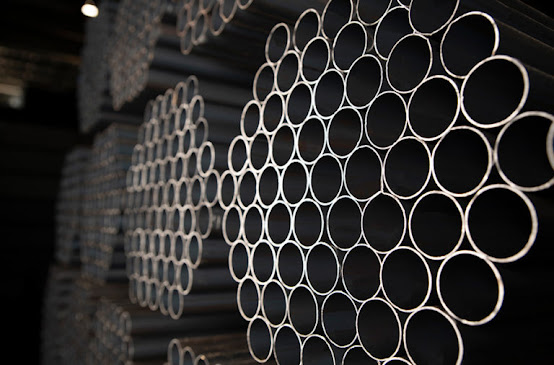The Future of Steel Manufacturing: Innovations Shaping the Industry
Steel manufacturing has
always been the backbone of various industries, providing the raw materials
necessary for construction, automotive, energy, and many other sectors. However,
as the world continues to evolve, the steel manufacturing industry faces
increasing pressure to innovate and adapt.
From advancements in steel
production processes to the growing demand for more sustainable solutions, the
future of steel manufacturing is set to be transformative. In this article, we
explore the latest innovations shaping the industry, including the development
of cutting-edge steel fabrication services and how new technologies are
reshaping the steel production landscape.
The Evolution of Steel Manufacturing
Steel manufacturing has a
long and storied history, but recent advancements in technology have
dramatically changed how steel is produced. Traditionally, steel was produced
through blast furnaces, a process that involves melting iron ore with coke and
limestone at extremely high temperatures. However, as global demand for steel
continues to rise, manufacturers are seeking more efficient and sustainable
methods.
Innovations in Steel Production Processes
The Fu efficiency adduction
processes is characterised by a strong focus on sustainability, energy
efficiency, and reducing environmental impact. One of the most exciting
innovations is the rise of electric arc furnaces (EAFs). Unlike traditional
blast furnaces, which rely on coal, EAFs use electricity to melt scrap steel,
drastically reducing carbon emissions.
Another breakthrough is the
development of hydrogen-based steel production. By using hydrogen instead of
carbon, this process generates water vapour instead of carbon dioxide, offering
a much cleaner alternative to conventional methods. As the world strives to
reduce its carbon footprint, this green technology holds great promise for the
steel manufacturing industry.
Furthermore, advancements in
automation and artificial intelligence (AI) are revolutionising the way steel
is produced. AI-driven systems can optimise production schedules, monitor
equipment performance, and predict potential issues before they arise, increasing
efficiency and reducing downtime. These innovations in steel production
processes are paving the way for a more sustainable and cost-effective future.
Steel Fabrication Services: Meeting the Demand for Precision and Customisation
As the steel manufacturing
industry continues to evolve, so too does the demand for steel fabrication
services. Steel fabrication involves the cutting, shaping, and assembling of
steel components to create customised solutions for a wide range of applications.
The demand for precision and customised steel products has surged in recent
years, driven by industries like construction, automotive, and aerospace.
Modern steel fabrication
services now rely heavily on advanced technologies like computer-aided design
(CAD) and 3D printing. These tools allow manufacturers to create intricate
designs with unparalleled precision, reducing waste and improving the overall
quality of the final product. Moreover, the use of automated machinery in steel
fabrication processes enables faster production times and greater consistency
in the finished products.
One area where steel
fabrication services have seen significant growth is in the construction
sector. As the world’s population continues to grow, the demand for
infrastructure and residential buildings has skyrocketed. Steel’s durability,
strength, and flexibility make it the material of choice for constructing
high-rise buildings, bridges, and other large structures. Customised steel
components, such as beams, columns, and trusses, are increasingly being
produced to meet the specific needs of these projects.
Steel Manufacturing Industry: Embracing Sustainability and Digital Transformation
The steel manufacturing
industry is increasingly embracing sustainability practices, driven by both
regulatory pressures and consumer demand. Governments around the world are
implementing stricter environmental regulations, and steel manufacturers must comply
with these rules to avoid penalties. Additionally, many businesses and
consumers are placing a greater emphasis on sustainability, making it crucial
for manufacturers to adopt greener practices.
Digital transformation is
also playing a significant role in reshaping the steel manufacturing industry.
The integration of Internet of Things (IoT) devices, sensors, and AI allows
manufacturers to gather real-time data on production processes, equipment
performance, and environmental factors. This data can be used to optimise
production, reduce energy consumption, and enhance overall efficiency.
In addition to digital
technologies, the use of renewable energy sources is becoming more prevalent in
steel manufacturing. Solar, wind, and hydropower are being integrated into
production facilities to reduce reliance on fossil fuels and lower carbon emissions.
By adopting cleaner energy sources, steel manufacturers can significantly
reduce their environmental impact and move closer to achieving net-zero
emissions.
The Future Outlook: What’s Next for Steel Manufacturing?
As the Steel Manufacturing Industry continues
to evolve, the future looks bright. Innovations in steel production processes,
steel fabrication services, and sustainability initiatives will drive the
industry forward, creating new opportunities for growth and development.
Companies that invest in advanced technologies and embrace digital
transformation will be well-positioned to thrive in an increasingly competitive
market.
To remain competitive,
businesses must prioritise innovation and sustainability. Those who can
integrate green technologies into their production processes and offer
customised, high-quality steel products will be in the best position to
succeed. The steel manufacturing industry is at a pivotal moment, and the
innovations that are shaping the industry today will determine its future for
generations to come.
Conclusion: The Road Ahead for Steel Manufacturing
The future of steel
manufacturing is poised for significant change, driven by innovations in steel
production processes, steel fabrication services, and sustainability efforts.
By embracing these advancements, steel manufacturers can not only meet the growing
demand for high-quality, customised steel products but also contribute to a
more sustainable and environmentally friendly future.
As the industry continues to
evolve, businesses that invest in cutting-edge technologies and stay ahead of
the curve will be able to position themselves as leaders in the steel
manufacturing industry. The road ahead is full of opportunities for those willing
to embrace innovation and sustainability, and the potential for growth and
success has never been greater.
.jpg)



Comments
Post a Comment